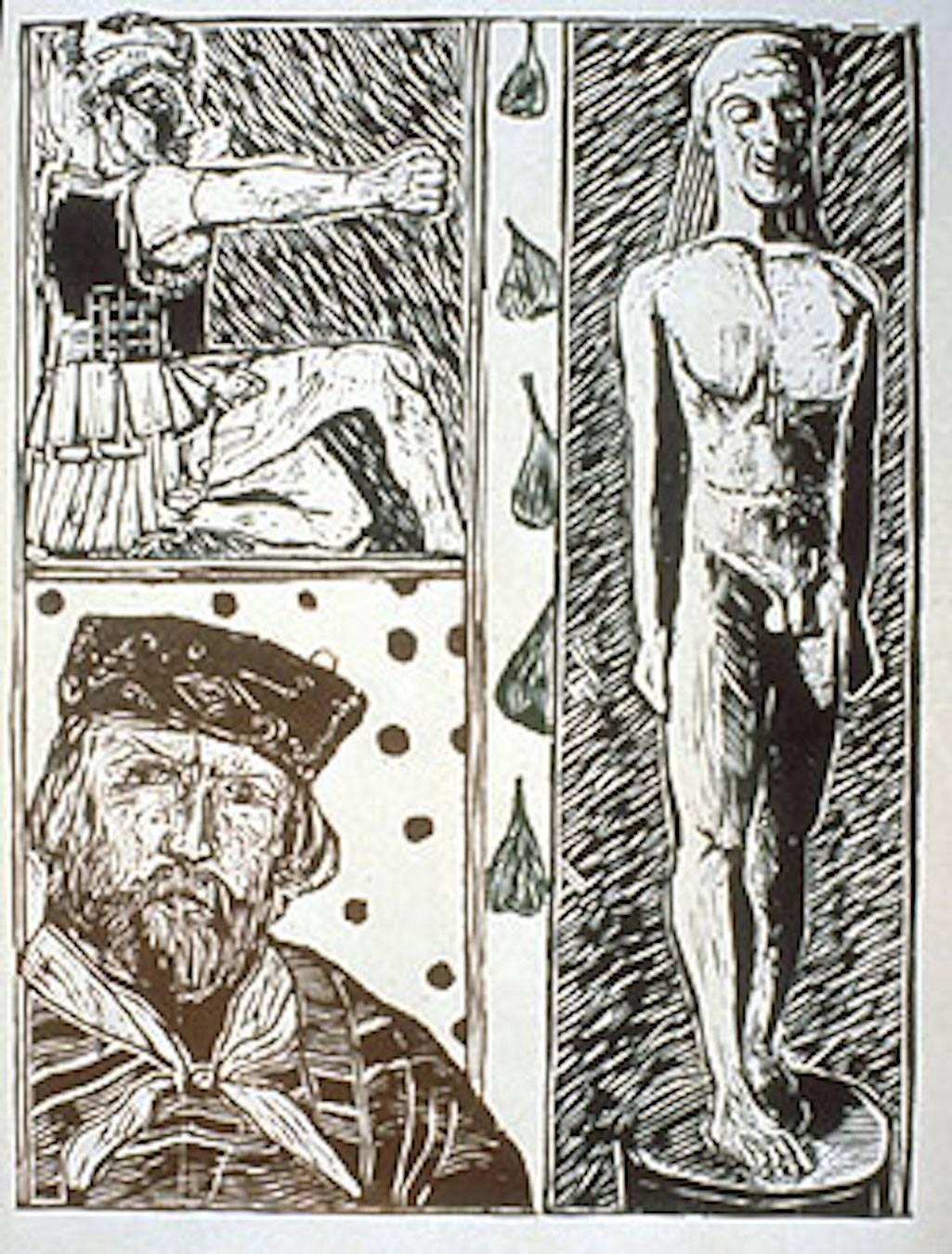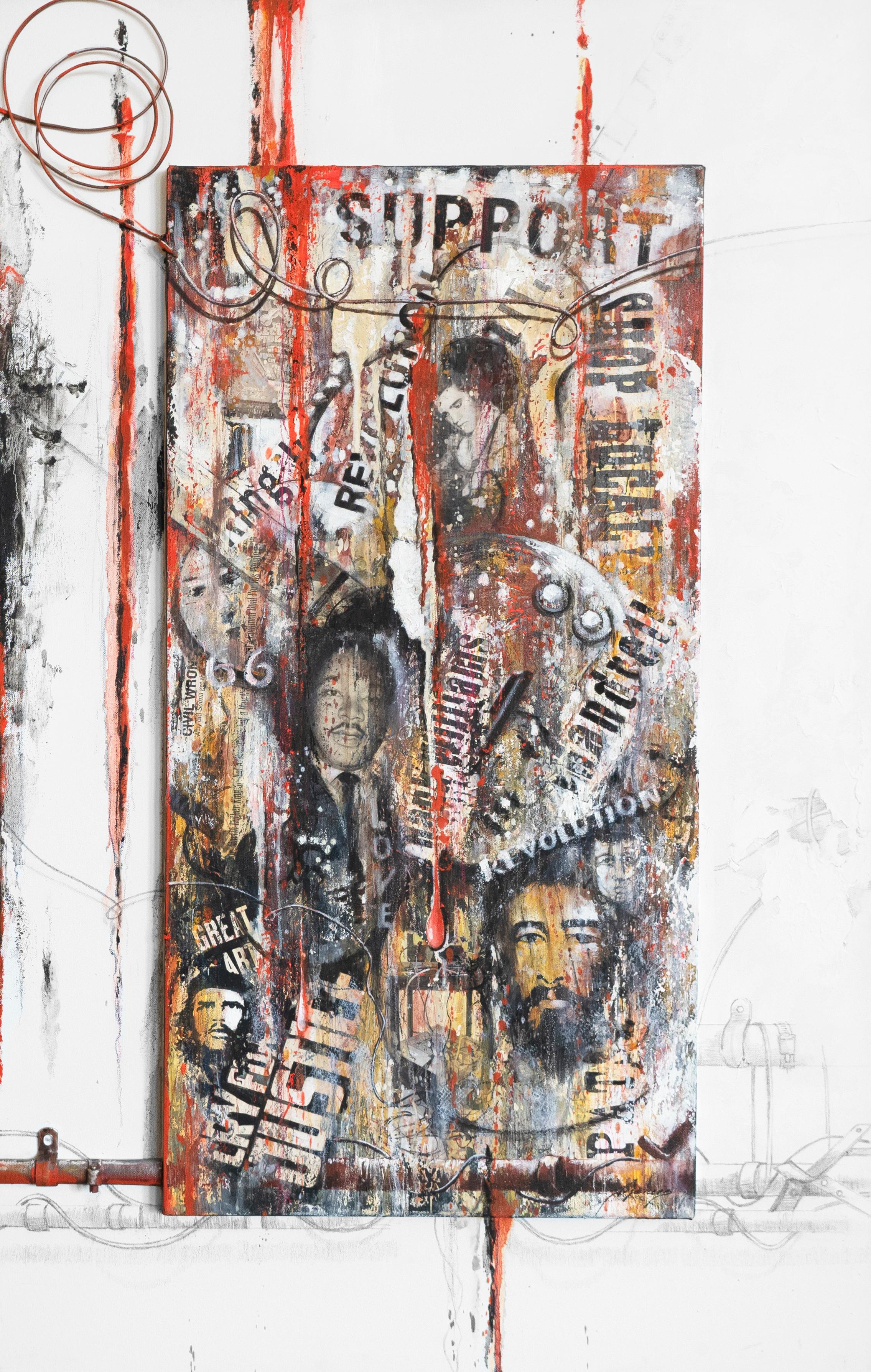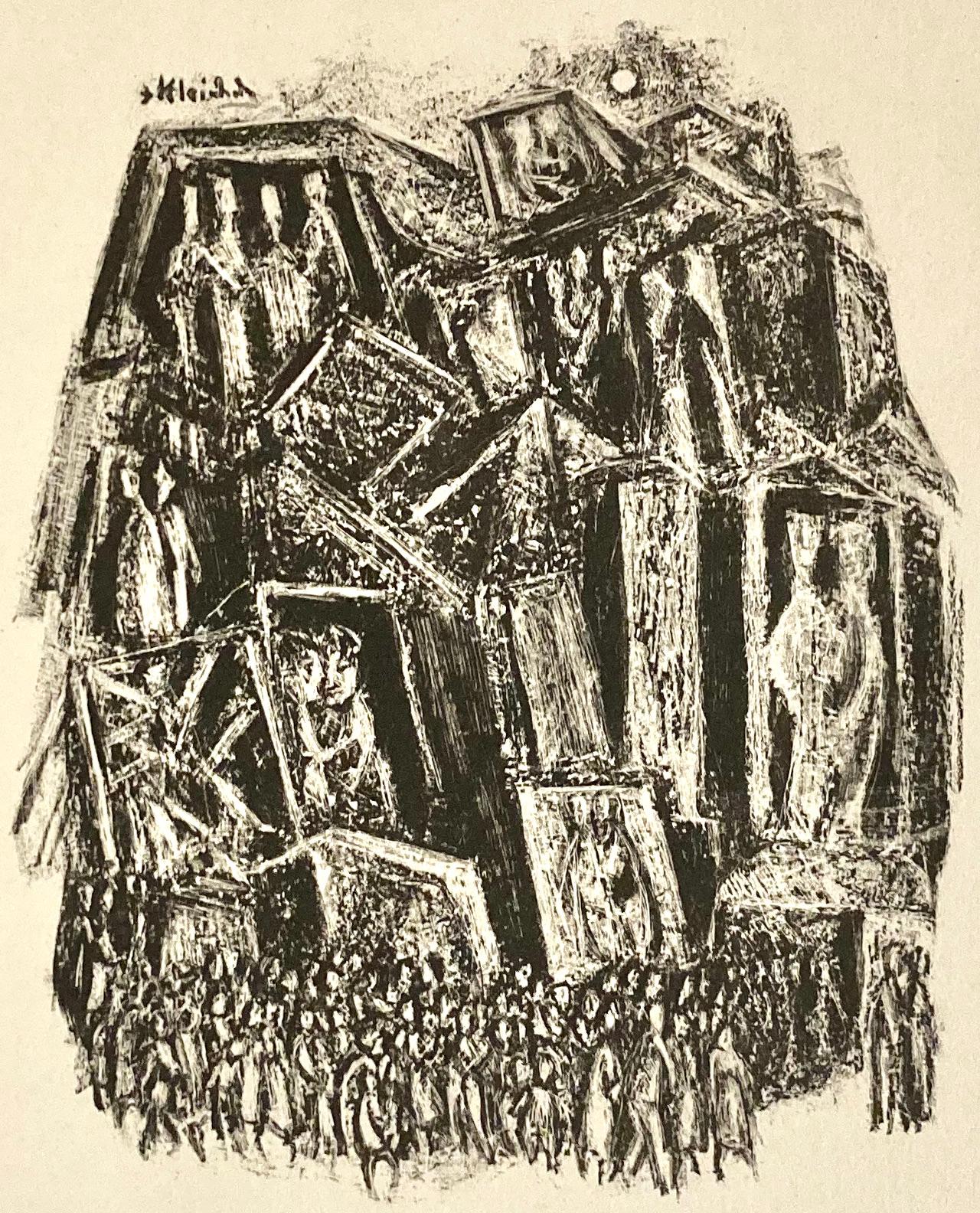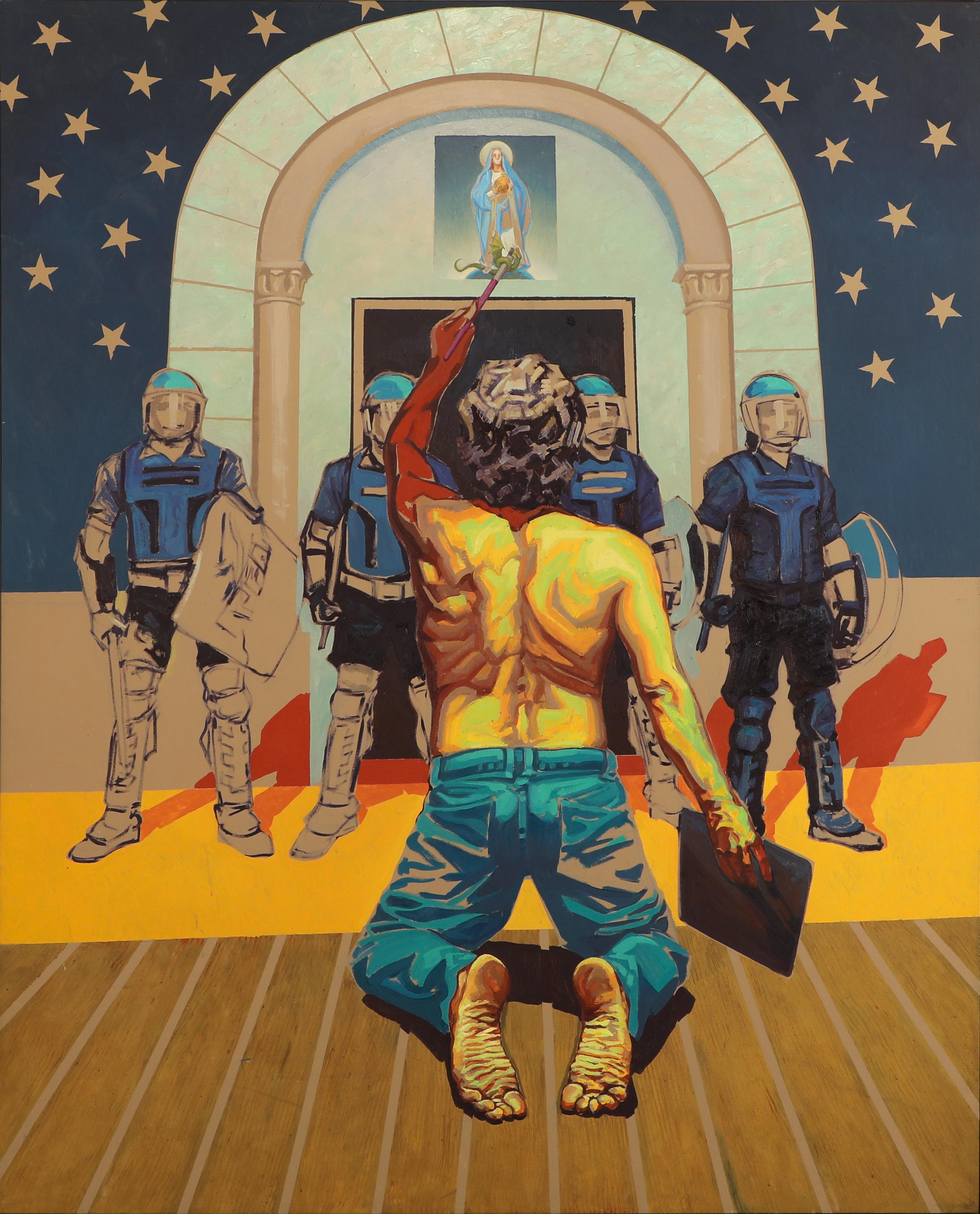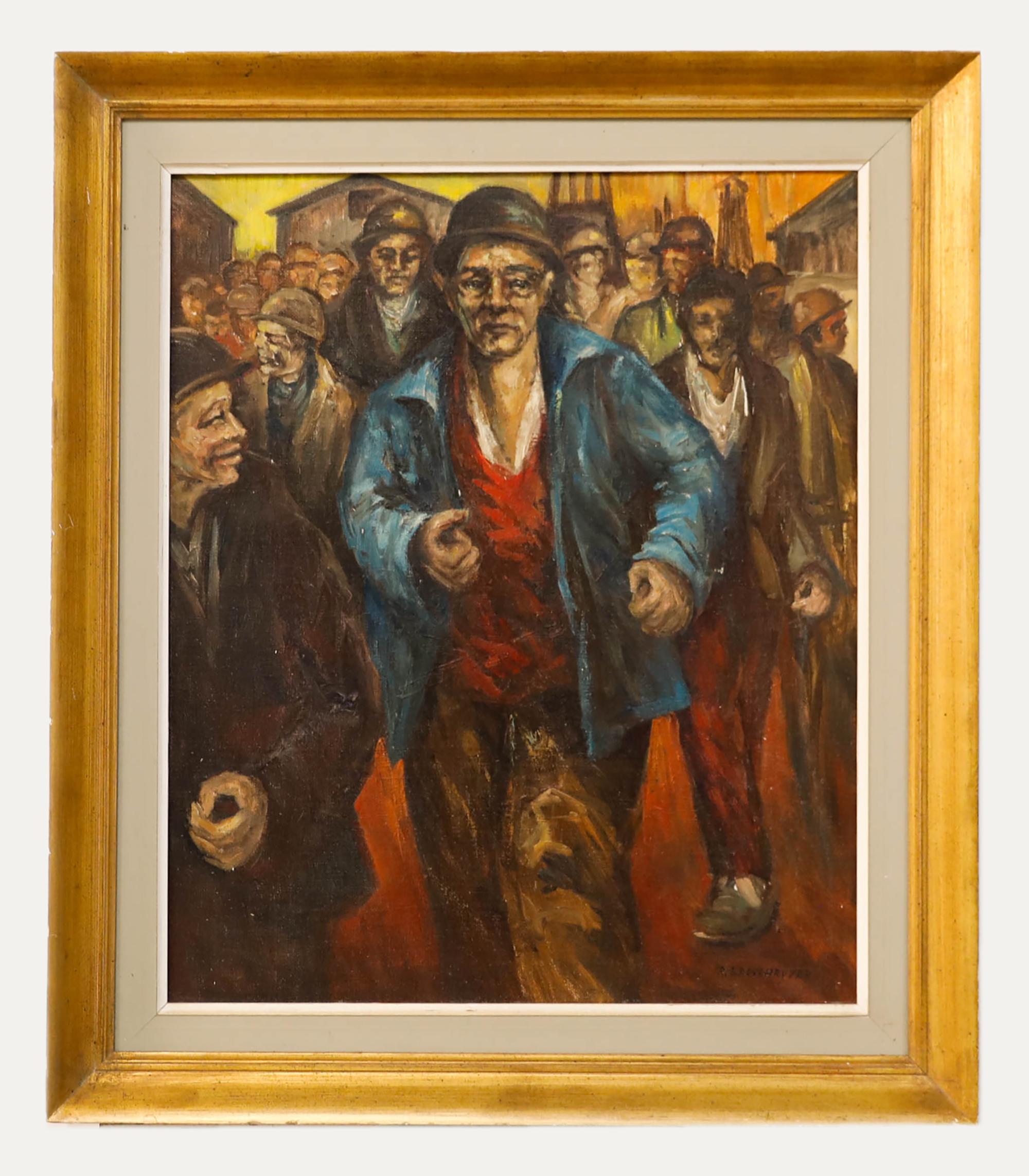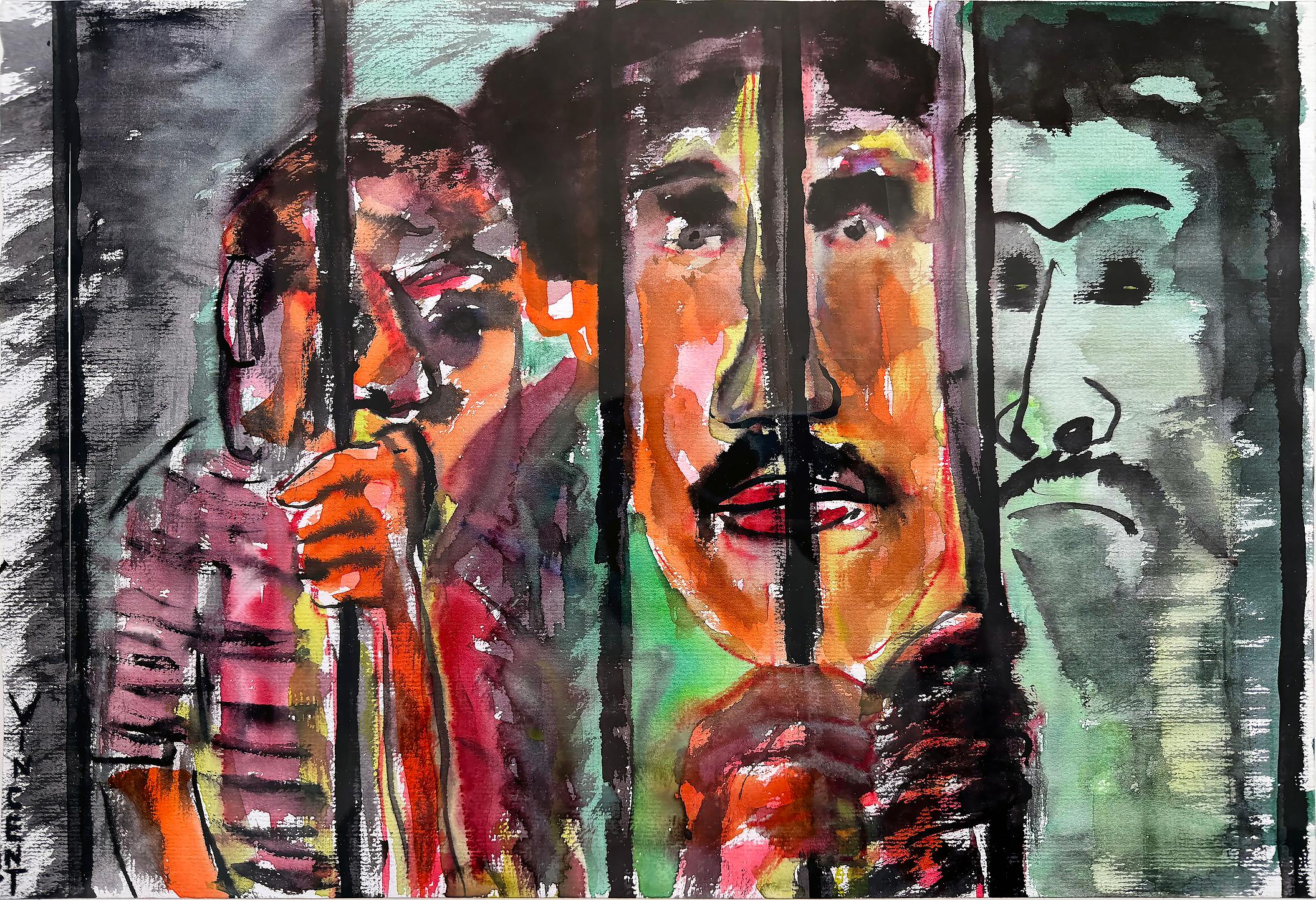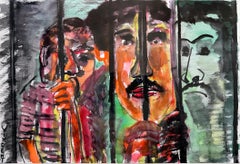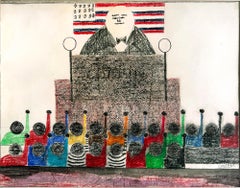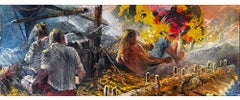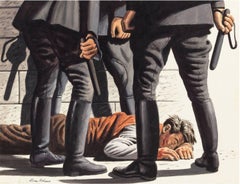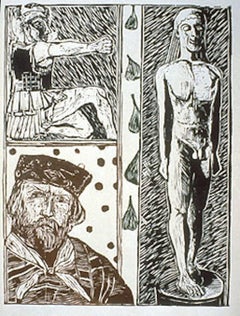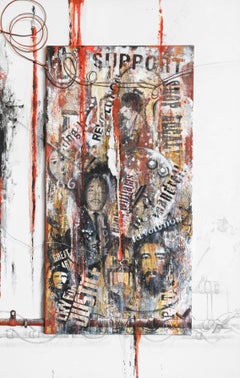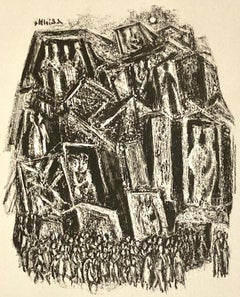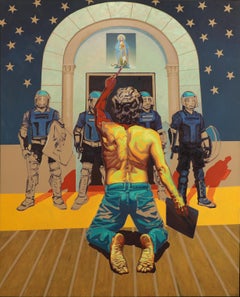Items Similar to Protest Revolt and Uprising illustration
Want more images or videos?
Request additional images or videos from the seller
1 of 8
Daniel MaffiaProtest Revolt and Uprising illustration1980
1980
$6,000
£4,557.15
€5,265.01
CA$8,409.22
A$9,411.50
CHF 4,912.08
MX$114,771.73
NOK 62,867.90
SEK 59,512.52
DKK 39,292.08
Shipping
Retrieving quote...The 1stDibs Promise:
Authenticity Guarantee,
Money-Back Guarantee,
24-Hour Cancellation
About the Item
This work is a quintessential protest statement piece depicting an angry mob brandishing powerful fits in the air in gestures of revolt
Signed lower right.
Daniel Maffia has done a wide variety of illustrations for newsstand magazines and covers for Time, Rolling Stone, New York Magazine and Mother Jones.
Maffia has taught at Sarah Lawrence College, Rutgers University, Parsons School of Design and Pratt Institute
Unframed.
- Creator:Daniel Maffia (1937, French)
- Creation Year:1980
- Dimensions:Height: 21.5 in (54.61 cm)Width: 18 in (45.72 cm)
- Medium:
- Movement & Style:
- Period:
- Condition:colors are bright and saturated. The paper surface has a slight undulation but its organic due to the nature of paint on paper. Looks wonderful in person.
- Gallery Location:Miami, FL
- Reference Number:1stDibs: LU38536329672
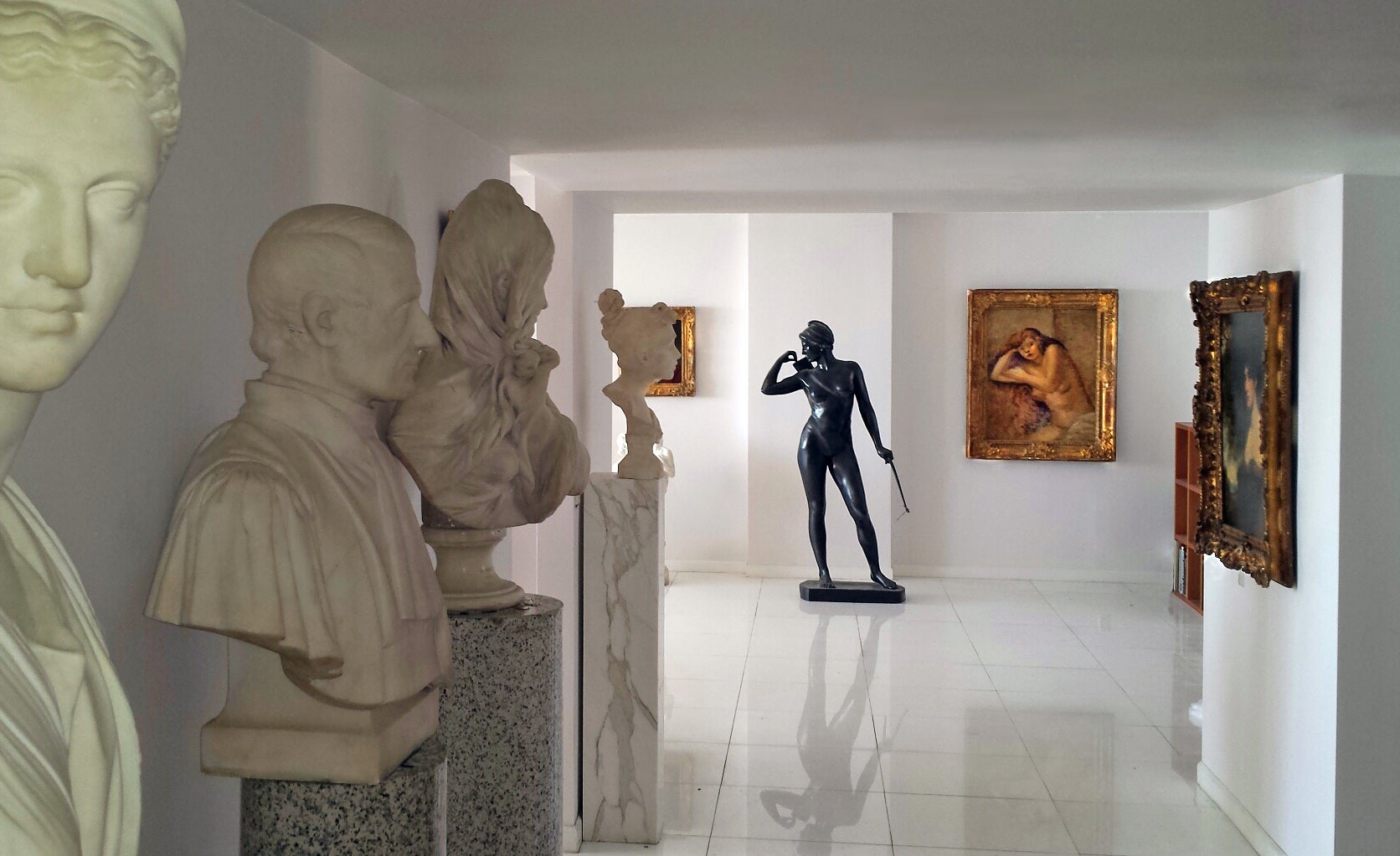
About the Seller
4.9
Gold Seller
Premium sellers maintaining a 4.3+ rating and 24-hour response times
Established in 2005
1stDibs seller since 2016
115 sales on 1stDibs
Typical response time: <1 hour
- ShippingRetrieving quote...Shipping from: Miami, FL
- Return Policy
Authenticity Guarantee
In the unlikely event there’s an issue with an item’s authenticity, contact us within 1 year for a full refund. DetailsMoney-Back Guarantee
If your item is not as described, is damaged in transit, or does not arrive, contact us within 7 days for a full refund. Details24-Hour Cancellation
You have a 24-hour grace period in which to reconsider your purchase, with no questions asked.Vetted Professional Sellers
Our world-class sellers must adhere to strict standards for service and quality, maintaining the integrity of our listings.Price-Match Guarantee
If you find that a seller listed the same item for a lower price elsewhere, we’ll match it.Trusted Global Delivery
Our best-in-class carrier network provides specialized shipping options worldwide, including custom delivery.More From This Seller
View AllBlack Power, Attica Prison Riot Prisoners Racial Justice - African American Art
Located in Miami, FL
African American Artist Vincent D Smith makes a statement about racial justice. In this work from 1972, he depicts three African American prisoners with their faces pushed up agains...
Category
1970s Modern Figurative Drawings and Watercolors
Materials
Watercolor
Black Panther Trials - Civil Rights Movement Police Violence African American
Located in Miami, FL
The Black Panther Trials - In this historically significant work, African American Artist Vicent D. Smith functions as an Art Journalist/ Court Reporter as much as a
Artist. Here, he depicts, in complete unity, 21 Black Panther Protestors raising their fist of defiance at the White Judge. Smith's composition is about utter simplicity, where the Black Panther Protestors are symmetrically lined up in a confrontation with a Judge whose size is exaggerated in scale. Set against a stylized American Flag, the supercilious Judge gazes down as the protesters as their fists thrust up. Signed Vincent lower right. Titled Panter 21. Original metal frame. Tape on upper left edge of frame. 255 . Panther 21. Framed under plexi.
_____________________________
From Wikipedia
In 1969-1971 there was a series of criminal prosecutions in New Haven, Connecticut, against various members and associates of the Black Panther Party.[1] The charges ranged from criminal conspiracy to first-degree murder. All charges stemmed from the murder of 19-year-old Alex Rackley in the early hours of May 21, 1969. The trials became a rallying-point for the American Left, and marked a decline in public support, even among the black community, for the Black Panther Party
On May 17, 1969, members of the Black Panther Party kidnapped fellow Panther Alex Rackley, who had fallen under suspicion of informing for the FBI. He was held captive at the New Haven Panther headquarters on Orchard Street, where he was tortured and interrogated until he confessed. His interrogation was tape recorded by the Panthers.[2] During that time, national party chairman Bobby Seale visited New Haven and spoke on the campus of Yale University for the Yale Black Ensemble Theater Company.[3] The prosecution alleged, but Seale denied, that after his speech, Seale briefly stopped by the headquarters where Rackley was being held captive and ordered that Rackley be executed. Early in the morning of May 21, three Panthers – Warren Kimbro, Lonnie McLucas, and George Sams, one of the Panthers who had come East from California to investigate the police infiltration of the New York Panther chapter, drove Rackley to the nearby town of Middlefield, Connecticut. Kimbro shot Rackley once in the head and McLucas shot him once in the chest. They dumped his corpse in a swamp, where it was discovered the next day. New Haven police immediately arrested eight New Haven area Black Panthers. Sams and two other Panthers from California were captured later.
Sams and Kimbro confessed to the murder, and agreed to testify against McLucas in exchange for a reduction in sentence. Sams also implicated Seale in the killing, telling his interrogators that while visiting the Panther headquarters on the night of his speech, Seale had directly ordered him to murder Rackley. In all, nine defendants were indicted on charges related to the case. In the heated political rhetoric of the day, these defendants were referred to as the "New Haven Nine", a deliberate allusion to other cause-celebre defendants like the "Chicago Seven".
The first trial was that of Lonnie McLucas, the only person who physically took part in the killing who refused to plead guilty. In fact, McLucas had confessed to shooting Rackley, but nonetheless chose to go to trial.
Jury selection began in May 1970. The case and trial were already a national cause célèbre among critics of the Nixon administration, and especially among those hostile to the actions of the FBI. Under the Bureau's then-secret "Counter-Intelligence Program" (COINTELPRO), FBI director J. Edgar Hoover had ordered his agents to disrupt, discredit, or otherwise neutralize radical groups like the Panthers. Hostility between groups organizing political dissent and the Bureau was, by the time of the trials, at a fever pitch. Hostility from the left was also directed at the two Panthers cooperating with the prosecutors. Sams in particular was accused of being an informant, and lying to implicate Seale for personal benefit.
In the days leading up to a rally on May Day 1970, thousands of supporters of the Panthers arrived in New Haven individually and in organized groups. They were housed and fed by community organizations and by sympathetic Yale students in their dormitory rooms. The Yale college dining halls provided basic meals for everyone. Protesters met daily en masse on the New Haven Green across the street from the Courthouse (and one hundred yards from Yale's main gate). On May Day there was a rally on the Green, featuring speakers including Jean Genet, Abbie Hoffman, Jerry Rubin, and John Froines (an assistant professor of chemistry at the University of Oregon). Teach-ins and other events were also held in the colleges themselves.
Towards midnight on May 1, two bombs exploded in Yale's Ingalls Rink, where a concert was being held in conjunction with the protests.[4] Although the rink was damaged, no one was injured, and no culprit was identified.[4]
Yale chaplain William Sloane Coffin stated, "All of us conspired to bring on this tragedy by law enforcement agencies by their illegal acts against the Panthers, and the rest of us by our immoral silence in front of these acts," while Yale President Kingman Brewster Jr. issued the statement, "I personally want to say that I'm appalled and ashamed that things should have come to such a pass that I am skeptical of the ability of a Black revolutionary to receive a fair trial anywhere in the U.S." Brewster's generally sympathetic tone enraged many of the university's older, more conservative alumni, heightening tensions within the school community.
As tensions mounted, Yale officials sought to avoid deeper unrest and to deflect the real possibility of riots or violent student demonstrations. Sam Chauncey has been credited with winning tactical management on behalf of the administration to quell anxiety among law enforcement and New Haven's citizens, while Kurt Schmoke, a future Rhodes Scholar, mayor of Baltimore, MD and Dean of Howard University School of Law, has received kudos as undergraduate spokesman to the faculty during some of the protest's tensest moments. Ralph Dawson, a classmate of Schmoke's, figured prominently as moderator of the Black Student Alliance at Yale (BSAY).
In the end, compromises between the administration and the students - and, primarily, urgent calls for nonviolence from Bobby Seale and the Black Panthers themselves - quashed the possibility of violence. While Yale (and many other colleges) went "on strike" from May Day until the end of the term, like most schools it was not actually "shut down". Classes were made "voluntarily optional" for the time and students were graded "Pass/Fail" for the work done up to then.
Trial of McLucas
Black Panther trial sketch...
Category
1970s American Modern Figurative Drawings and Watercolors
Materials
Watercolor, Pen, Pencil, Paper
Journey to the Center of the Earth Illustration
Located in Miami, FL
20th Century Italian Illustrator Gianna Renna depicts a emotionally-charged scene of three men on a raft descending into a fiery abyss. His conception and execution of Jules Verne's ...
Category
1960s Contemporary Figurative Paintings
Materials
Tempera
The Beating - Police and Man
By Stevan Dohanos
Located in Miami, FL
Watercolor and gouache on paper laid on board
Magazine Illustration defined by bold graphic composition and limited color palate yielding a powerful image that jumps off the page. u...
Category
1960s Post-Modern Figurative Paintings
Materials
Watercolor, Gouache
Devil: No Horns, Burning in Hell, African American Harlem Renaissance
Located in Miami, FL
In a 1971 interview with Ebony Magazine, Alvin Hollinsworth commented on his African Jesus Christ painting, "I have always felt that Christ was a Blac...
Category
1970s Expressionist Figurative Paintings
Materials
Masonite, Oil
Untitled: Street Art - Graffiti Art Before Basquiat - African American
Located in Miami, FL
Sometimes, the most celebrated artists are not the most original. Such is the case with Jean-Michel Basquiat, known for bringing into mainstream abstract yet representational street ...
Category
1970s Street Art Mixed Media
Materials
Metal
You May Also Like
The Revolt
By Italo Scanga
Located in New York, NY
Italo Scanga was born in the Calabria region of Italy, and at 14 immigrated to the United States with his family after World War II. Living in Detroit, he worked on the General Motor...
Category
1980s Contemporary Portrait Prints
Materials
Woodcut
$840 Sale Price
30% Off
Revolution
By Jorge Yances
Located in Nashville, TN
Award-winning artist Jorge Yances reflects the Latin literary tradition of Magical realism with his ability to blend fantasy and reality in his artwork.
...
Category
2010s Contemporary Paintings
Materials
Oil
$2,100
Frank Kleinholz, World Premier
By Frank Kleinholz
Located in New York, NY
Frank Kleinholz was a lawyer-turned-modernist-artist. This work may have been printed in France in the late 1940s when he went there to learn lithography. He returned to the states i...
Category
Mid-20th Century American Modern Figurative Prints
Materials
Lithograph
Los Guardianes del Umbrai, 2006
Located in Atlanta, GA
I was born in Mexico City in 1963 and brought to the United States in the mid 70's, by my parents, when I was 13 years old. I attended my first art class in the late 80's, while at ...
Category
21st Century and Contemporary Modern Figurative Paintings
Materials
Oil
R. E. Deschryver - 20th Century Oil, The Strike
Located in Corsham, GB
A striking scene depicting workers who appeared to have downed tools, leaving an industrial site. The artist captures the scene in rich, earthy tones and an impressionist style. Sign...
Category
20th Century Figurative Paintings
Materials
Oil
Molotov, Painting, Oil on Canvas
By Sharilyn Neidhardt
Located in Yardley, PA
From a photojournalist's image on the newswires. Rebels camped in a Serbian forest throw Molotov cocktails at armored government forces. From the series "Conflict" :: Painting :: Con...
Category
Early 2000s Contemporary Paintings
Materials
Oil
